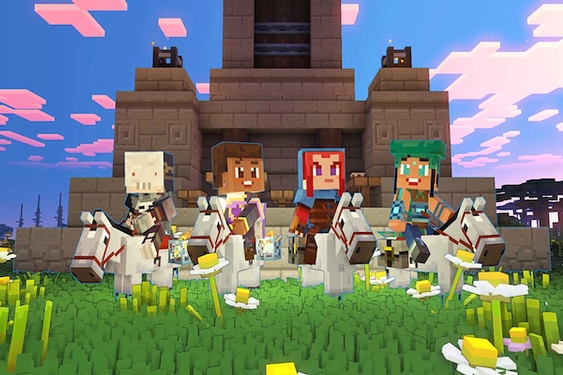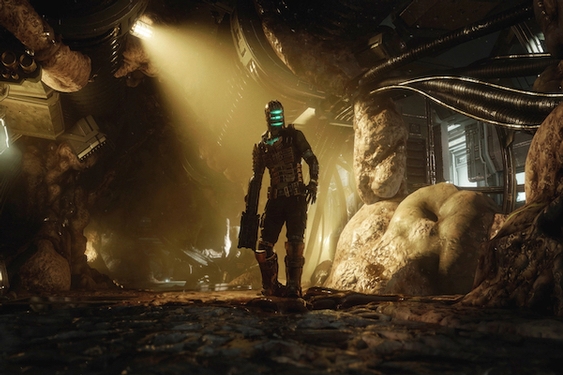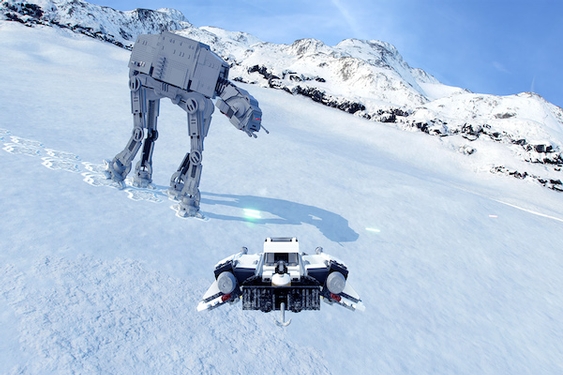The shrieks of a young, eerily faceless boy fill a slightly pixelated green hospital room. His father tries desperately to comfort him, but it’s no use: Chemotherapy hurts. Radiation hurts.
Dying hurts.
From its very first scene, “That Dragon, Cancer” makes one thing crystal clear: This is not a traditional, modern game. A series of snapshots with a few common themes — hope, religion and death — replace a traditional narrative. Simple point-and-click mechanics, a long-dead art form in gaming, are used in place of a full control set. At a rushed glance, the graphics appear to be 30 years old.
In spite of this — or maybe because of it — “That Dragon, Cancer” works on every level. It is a fully sensory experience; its first breath stole all of mine. My instincts to find a dark, quiet area in the office were on point. Sobbing into a keyboard for two hours isn’t really appropriate in the middle of a loud, busy newsroom.
The indie game revolves around its creators, Ryan and Amy Green, and the couple’s third son, Joel, who was diagnosed with an atypical teratoid rhabdoid tumor at 1. Ryan, an indie developer, and Amy, a writer, assembled a small team to help them craft “That Dragon, Cancer” — a painful re-imagining of Joel’s four-year struggle before ultimately passing away in March of 2014.
Their pain is felt immediately. Much of the player’s game time is spent simply listening to or reading actual testimony from the couple — Amy’s voice mails for her husband, Ryan’s heart-wrenching explanation to his other young sons of why Joel can’t speak.
I wouldn’t exactly call “That Dragon, Cancer” fun. Much of the play through hurts — not in a maddening way, but in a way that a great documentary stings your insides. It’s a cathartic feeling.
Although much of the gameplay is spent solving basic puzzles, some levels don’t really have an endgame. The player simply struggles — often to the point of wondering whether or not the game is bugged or frozen — before abruptly moving on to the next stage.
I imagine these levels are meant to mirror the struggle faced by the Greens, who clearly did everything in their power to help their son. I just can’t imagine what this whole process has been like for them — the strength it must have taken to rehash painful memories every single day in an effort to create a truly memorable and lasting piece of art. I didn’t even know until the final credits that Amy is the one who emailed me my review copy; they handled everything themselves.
“That Dragon, Cancer” isn’t all doom and gloom. Some of the levels drift into Joel’s perspective. Players are left to imagine what a 2-year-old — sick but happy — thinks when he looks at the mobile above his crib or at the top of the slide. This surrealism melts into the adults’ portions as well, with the common theme of avoiding impossibly black cancer cells — often disguised as trees or floating mines — remaining constant. This design gives the title an artistic flow seen maybe once or twice in a generation in the video game medium.
The glue that holds these vastly different scenes together is undoubtedly Jon Hillman’s score and sound design. I often praise Austin Wintory, the only composer nominated for a Grammy for a game score, for his work on “The Banner Saga,” “Journey” and others. Hillman’s work is on that level, as he delivers both a steady musical score played under the game’s main vehicle — the Greens’ dialogue — as well as interactive sound elements fittingly similar to the noisy toys children play with.
Perhaps the true strength of “That Dragon, Cancer” lies in its tackling of how we view the malady. The game serves as an analysis of the world’s constant war analogies concerning cancer: Patients win or lose their “battles” with the disease.
That language is used daily, and I’ve never been a fan. I’ve written obituaries. We say things like “Susan fought hard, but in the end, she lost her battle with cancer.” To me, that implies the person wasn’t good enough — made some mistake along the way.
That is just so far from the truth. As the game, personal experience and basic perception in the modern world illustrates, cancer takes many, many people who were more than good enough.
For a game, something that many — even me, at times — view as a trivial recreation activity, to affect such serious themes and stimulate so many seldom-used emotions is a great achievement.
———
THAT DRAGON, CANCER
4 stars
Not officially rated, but quite family friendly
Developer: Numinous Games
Publisher: Numinous Games
Available now for PC, Mac and OUYA
———
©2016 The Fresno Bee (Fresno, Calif.)
Visit The Fresno Bee (Fresno, Calif.) at www.fresnobee.com
Distributed by Tribune Content Agency, LLC.




